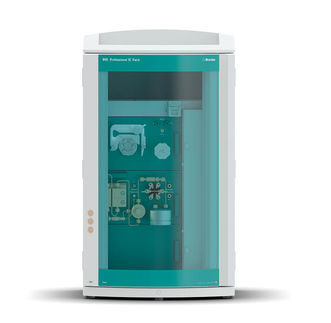To use all functions of this page, please activate cookies in your browser.
my.chemeurope.com
With an accout for my.chemeurope.com you can always see everything at a glance – and you can configure your own website and individual newsletter.
- My watch list
- My saved searches
- My saved topics
- My newsletter
Germar RudolfGermar Rudolf (born 29 October 1964 in Limburg an der Lahn) is a German chemist and Holocaust denier.[1] Product highlight
BackgroundAfter finishing secondary education in 1983 in Remscheid, Rudolf studied chemistry in Bonn, completing his studies in 1989. As a student, he joined A.V. Tuisconia Königsberg zu Bonn and K.D.St.V. Nordgau Prag zu Stuttgart. Both are Catholic fraternities belonging to the Cartellverband der katholischen deutschen Studentenverbindungen. He was a temporary supporter of the CSU/CDU, but due to their failure to address immigration reform and, more importantly, their anti-reunification platform, Rudolf parted ways and became a temporary member of Die Republikaner (REP). The REP was in favor of the Federal Republic of Germany's reunification with East Germany. Finishing PhD postgraduate studies after his military service, he was temporarily employed at the Max Planck Institute for Solid State Research in Stuttgart, beginning in October 1990. During this time he wrote a paper, titled "Report on the formation and verifiability of cyanide compounds in the Auschwitz gas chambers" on behalf of the Düsseldorf attorney Hajo Herrmann, a former Luftwaffe pilot holding the rank of Oberst. In 1993, Rudolf was expelled from the Max Planck Institute for his unauthorised use of the institute's name to get samples analysed that were taken from the gas chamber sites at Auschwitz and Birkenau. He sued unsuccessfully against the decision. Herrmann used Rudolf's paper in the defense of Otto Ernst Remer, a former Luftwaffe official charged with incitement of hatred, a criminal offense in German law. Rudolf was not immediately aware of with whom his work had become publically associated, but he states that his findings at Auschwitz and Birkenau "completely shattered his world view." The report states that, after having collected samples of the gas chambers' brickwork in the Auschwitz concentration camp, only small traces of cyanide compounds in the wall's remainders.[2] This report has been critically analyzed by Richard Green and Jamie McCarthy from The Holocaust History Project. Rudolf's findings were eventually published in his book, The Rudolf Report, where he addresses the science community's response, including Green's criticism. In 1995, Rudolf was expelled from the Catholic fraternities on grounds of having violated his fraternity's principles by his Holocaust denial publications. Legal consequences: Escape, Deportation and ImprisonmentIn 1994, Rudolf was sentenced to 14 months in prison by the district court of Tübingen because of the "Rudolf Report", as Holocaust denial is a crime in Germany. Rudolf avoided prison by fleeing to Spain, England and finally to Chicago, USA. There, he applied for political asylum, but his request was denied. Meanwhile, criminal investigation continued in Germany. In August 2004, the district court of Mannheim distrained a bank account holding about €200,000. Rudolf and his associates had earned this money by selling Holocaust denying publications. On September 11, 2004, Rudolf married a US citizen, and took her name, Scheerer, until the two divorced. Nevertheless, his request for asylum was turned down in November of that year on the basis that his application was "frivolous". On October 19, 2005, Rudolf was arrested and deported to Germany on November 15.[3] There on arrival, he was arrested by police authorities and transferred to a prison in Stuttgart-Stammheim in Baden-Württemberg. On March 15, the Mannheim District Court sentenced Germar Rudolf to two years and six months in prison for inciting hatred, disparaging the dead, and libel. Rudolf as well as the prosecution accepted the verdict. Rudolf's "Lectures on the Holocaust" will be withdrawn.[4] PublicationsAfter Rudolf left the Max Planck Institute, he started to publish several books on Holocaust denial. Rudolf founded Castle Hill Publishers in Hastings, England. Furthermore, he is closely associated with the Belgian Holocaust denial organization Vrij Historisch Onderzoek (VHO). Dissecting the HolocaustDissecting the Holocaust was edited and coauthored by Rudolf under the nom de plume Ernst Gauss. The German language publication with the title Grundlagen zur Zeitgeschichte resulted in further indictments being filed against Rudolf. Among the contributors to the work are other Revisionist scholars such as Professor Robert Faurisson, Jürgen Graf, Carlo Mattogno, Udo Walendy and Friedrich Paul Berg. Included as an appendix is a defense of the work used at the trial by historian, Joachim Hoffmann.[5] Investigation into new reports about 9/11In July 2003, according to his own published articles, Rudolf conducted limited experiments in the use of cellular phones from an airliner while in flight. He reports mixed results and has left the question open. His stated reason for conducting these experiments is to verify or deny a widely circulated claim that it is impossible to make cellular phone calls from an airliner at cruising height. This he co-authored with Alexander Dewdney.[6] Notes
|
|
| This article is licensed under the GNU Free Documentation License. It uses material from the Wikipedia article "Germar_Rudolf". A list of authors is available in Wikipedia. |







